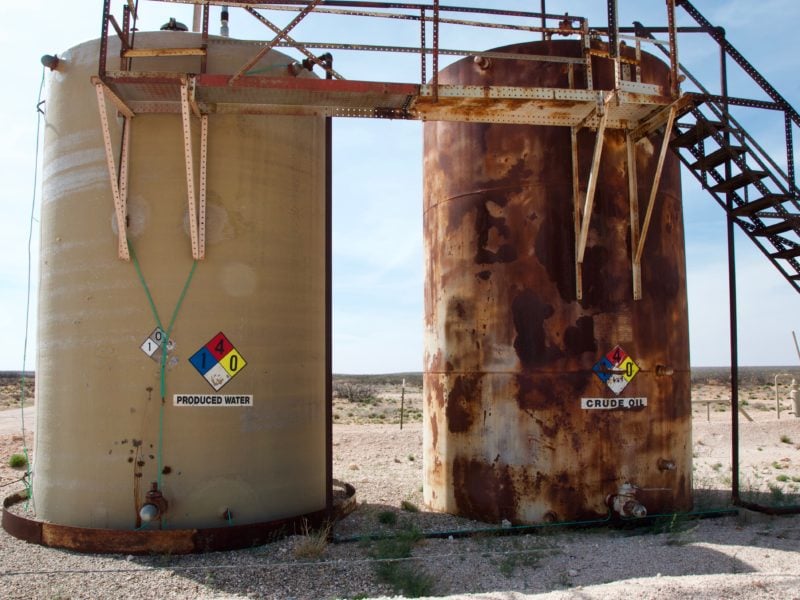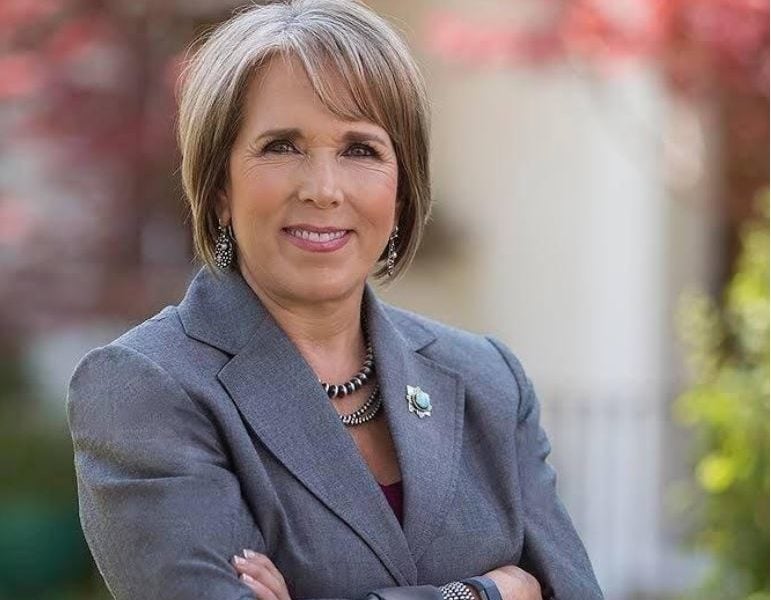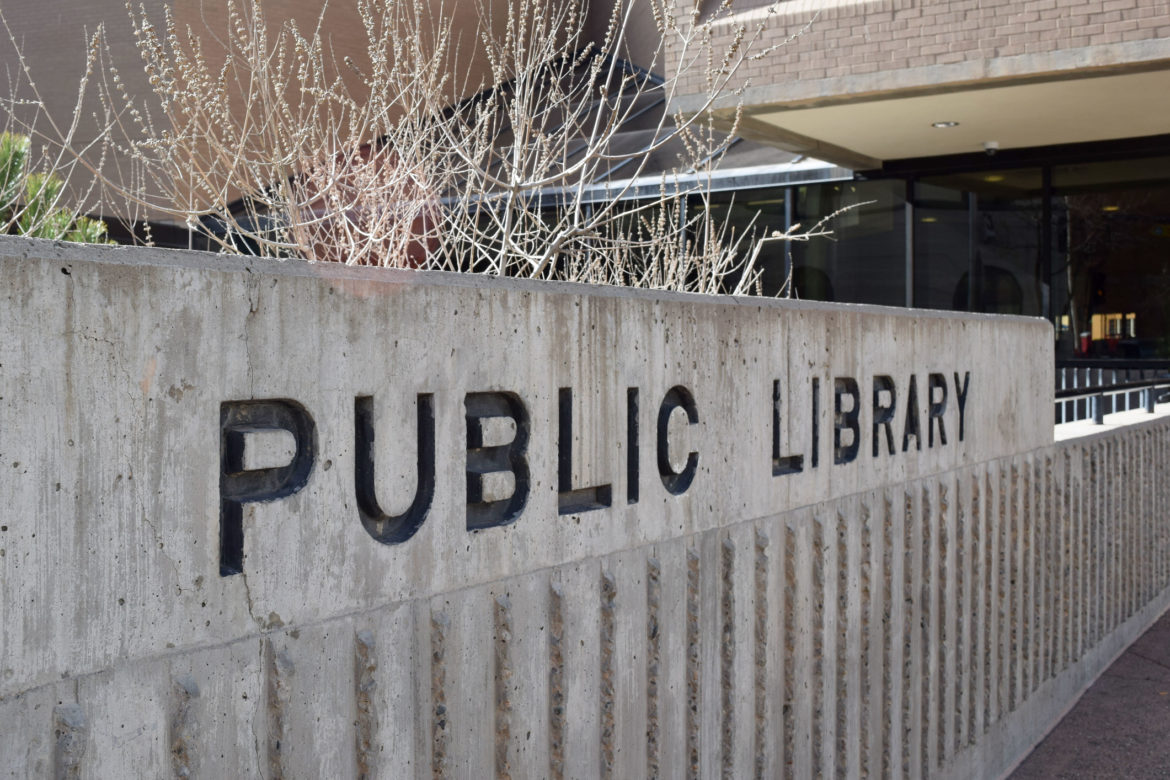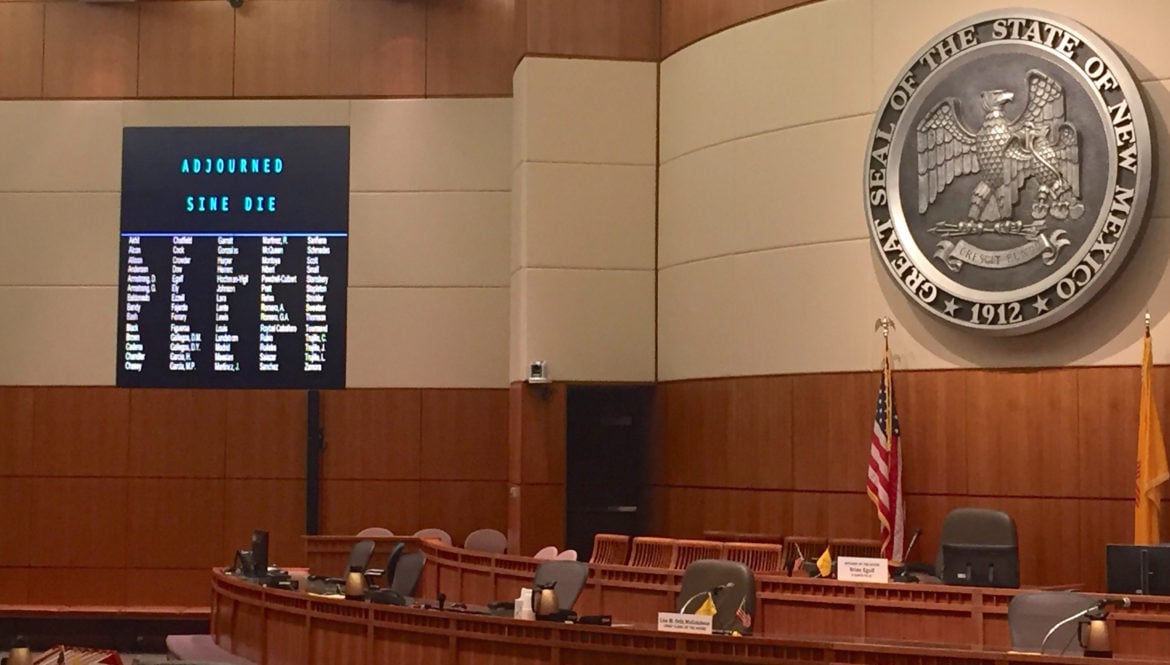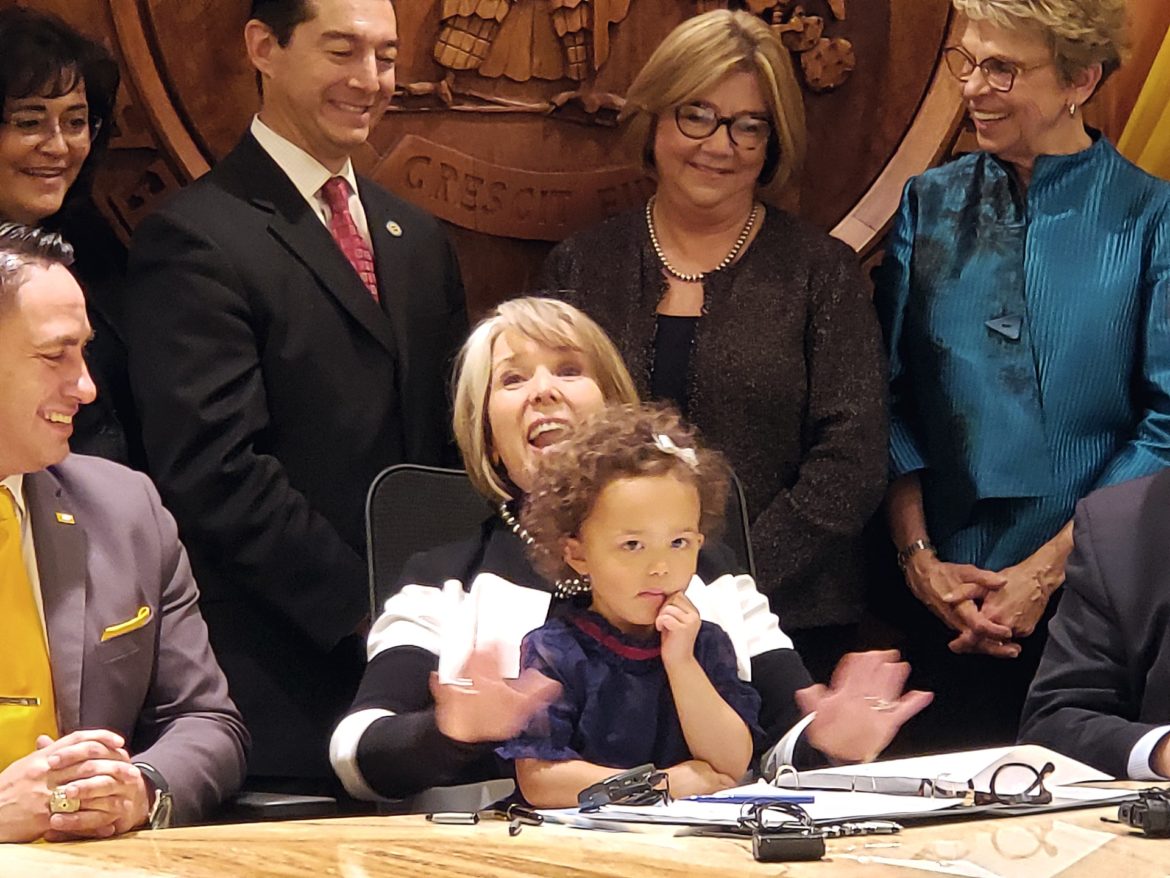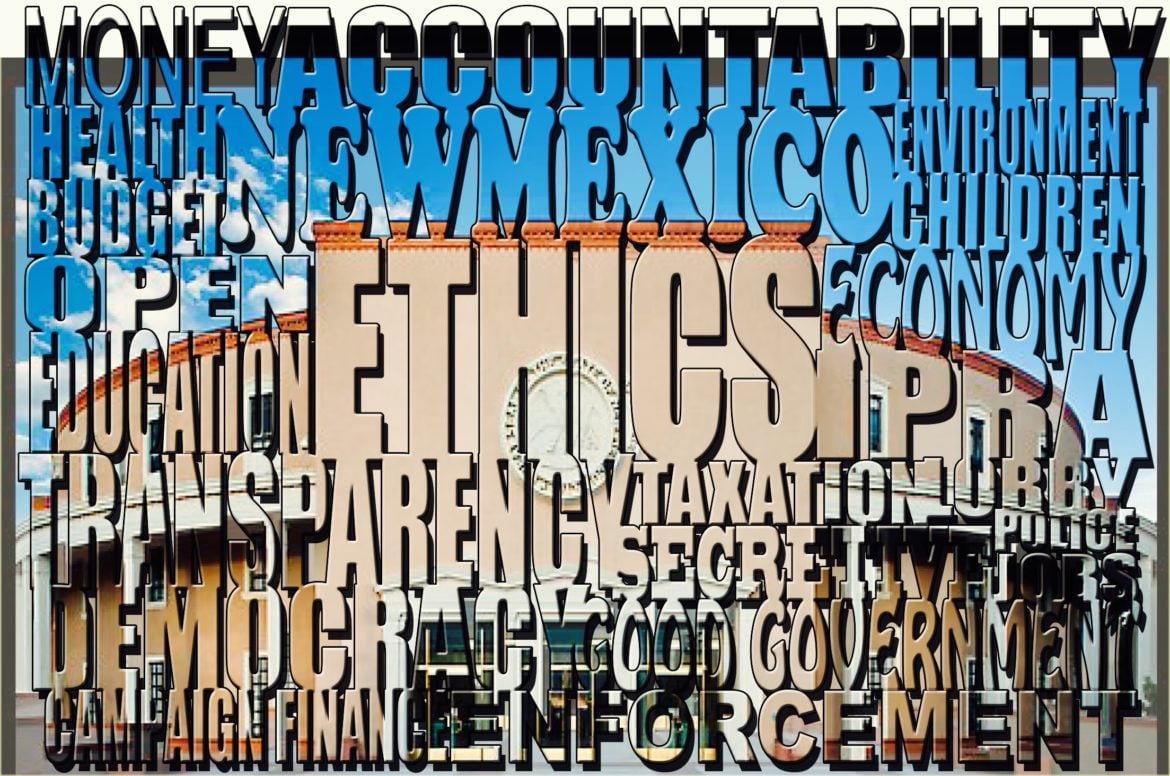A reporter sits at her desk looking at a spreadsheet. The rows and columns show the spending lobbyists reported to the Secretary of State’s Office for the first five months of 2019, which includes the 60-day legislative session. She wants to tell a story about what that spending bought. But there’s only so much to glean, because so much isn’t reported. That was me the other day.
2019 legislative session
Institute will take effort to combat child trauma statewide
|
Las Cruces City Councilor Kasandra Gandara is bringing together behavioral health, education, community organizing, child wellbeing and health groups in an effort to gather data on Adverse Childhood Experiences and use that information to combat childhood trauma. Tackling childhood trauma in a data-driven, community-based fashion went from an idea to an institute within the space of a year. Las Cruces City Councilor Kasandra Gandara knew from her years as a social worker at the Children Youth and Families Department that even front line workers in child protective services, faced with the hardest cases of abuse and neglect, were not aware of or trained in the theory of Adverse Childhood Experiences and the lifelong effects they have on health and learning. So when she read the book, “Anna, Age Eight: The Data-driven Prevention of Childhood Trauma and Maltreatment,” written by Katherine Ortega Courtney and Dominic Cappello, from research done at CYFD, she embarked on a mission to use data to prevent the heart-breaking instances of abuse she witnessed first-hand in Las Cruces and Dona Ana County. That project has grown swiftly.
Uncategorized
Legislature was good to young children, advocates say
|
Some children’s advocates are in an unusual position. After years of talk about state lawmakers taking a timid approach to early childhood education and child well-being, they say there were big wins from the just concluded legislative session. The biggest they cite is approval of a new Cabinet-level Early Childhood Education and Care Department. But when it comes to the incremental funding approach the state continues to take for programs serving children under 5, the assessment was mixed. Amber Wallin, deputy director at New Mexico Voices for Children.
Lujan Grisham vetting capital outlay, including small projects
|
In the wake of the 2019 legislative session, people across New Mexico are taking stock of how much Legislature-approved money to fund infrastructure will end up in their communities. There’s a lot of it–$933 million in the main capital outlay bill and an additional $60 million in “junior” spending bills drafted after lawmakers realized how flush the state is in oil money. Gov. Michelle Lujan Grisham has until April 5th to sign legislation. Before she signs off on the infrastructure spending, called capital outlay, it’s possible she’ll use her line item veto authority to strike some of the projects. She asked state agencies to “vet” projects, according to an email sent last week to potential recipients by the Department of Finance and Administration.
2019 legislative session
Governor and Democrats bask in session successes
|
Gov. Michelle Lujan Grisham celebrate the end of the 60-day session in a jubilant mood. Republicans had a different experience of the session. Photo credit: Trip Jennings
Gov. Michelle Lujan Grisham wrapped up her first session with the Legislature Saturday agreeing to the most significant increase in public school spending in decades and putting New Mexico in the hunt once again for leadership in the nation’s “green” movement. A three-term congresswoman and former state cabinet secretary, Lujan Grisham began talking about a “moonshot” for education before she was sworn in as governor. No one expected a “moonshot” overnight, although to hear the governor Saturday, her first session behind her, she seemed ready for Mars.
2019 legislative session
Lawmakers point state to new educational future
|
Young children listen to a teacher as part of the summer K-3 Plus program. It was a good year for education. Whether it was great depended on who you asked. Gov. Michelle Lujan Grisham and legislative leaders, both Democratic and Republican, extoled investments New Mexico made in education Saturday as the 60-day session came to a close. “This is a Legislature that delivered a moonshot,” the governor nearly shouted during a post-session press conference in her Cabinet Room on the fourth floor of the Roundhouse.
2019 legislative session
NM lawmakers go big on renewables, handle oil, gas with kid gloves
|
It was a mixed session for people who care about climate change and its effects. The state secured some large-scale wins, but failed to advance measures that would diversify the electrical grid and support individual households in reducing their own carbon footprint. And while measures to hold oil and gas companies accountable for violations of the Oil and Gas Act passed, there was little appetite among lawmakers for drawing more royalty money from an industry responsible for a billion dollar surplus this year. The flagship win for Democrats was the Energy Transition Act, SB 489, which commits the state to 100 percent carbon-free power by 2050. That bill schedules a payment plan for closing the San Juan Generating Station, a coal-fired power plant that supplies Public Service Company of New Mexico (PNM).
2019 legislative session
Long sought criminal justice reforms head to Governor
|
Lawmakers with an eye toward righting longstanding wrongs in the state’s criminal justice system— real or perceived — achieved success this session, pushing through reforms doomed under former Republican Gov. Susana Martinez’s vigilant eye as a former prosecutor. Democrats’ bolstered majority in the House, the margin they maintained in the Senate and Democratic Gov. Michelle Lujan Grisham’s win in November set a different tone coming into the session. And the largest budget surplus in recent memory meant justice system reforms that carried a price tag were suddenly possible. Legislation aimed at reducing New Mexico’s chronically high crime rates cleared the Senate and House, too. But this year’s bills had a different feel from those avidly debated in the recent past.
2019 legislative session
Legislature seals deal on independent ethics commission
|
With hours to go in the 60-day session, state lawmakers reached a deal on a new, independent ethics commission New Mexicans overwhelmingly demanded in November’s election. The House voted 66-0 Friday night to approve the latest version of ethics legislation that has undergone multiple metamorphoses in the last several days. The Senate accepted the changes soon after, sending the bill to Gov. Michelle Lujan Grisham’s desk for her signature. Rep. Daymon Ely, D-Corrales
Sen. Daniel Ivey-Soto, D-Albuquerque, who helped shape the bill approved by the House, said late Friday“tonight was step one,” of the state’s first independent ethics commission that would have oversight of state public officials. He predicted that the Legislature would return in coming years to add local government officials to those the ethics commission would oversee.
2019 legislative session
Bill forcing Parole Board to explain decisions on ‘30-year lifers’ heads to governor
|
A set of reforms to the state’s probation and parole systems is headed to the governor’s desk, with subtle changes to how the Parole Board considers requests for freedom by people sentenced to 30-years-to life in prison. House Bill 564 passed the Senate Tuesday after tweaks from that chamber’s Judiciary Committee, then cleared the House on a concurrence vote Wednesday. Current state law forces inmates sentenced to 30-years-to life in prison to show why they should be set free. The bill appears to shift the onus between the inmate and the state. In its original form the bill would have shifted that burden entirely to the state, mandating those inmates be paroled unless the board “makes a finding that the inmate is unable or unwilling to fulfill the obligations of a law-abiding citizen.”
The bill heading to the governor now says before paroling an inmate, the board would have to interview the inmate and “consider all pertinent information concerning the inmate.”
Another change to current law would eliminate the requirement that the board consider the “circumstances of the offense.” The revised bill requires the board to detail a finding that release is in the “best interest of society and the inmate,” conclude that the inmate is “willing to fulfill the obligations of a law-abiding citizen” and provide in writing specific support for its decision to grant or deny parole to the inmate.
2019 legislative session
House Judiciary ethics changes set up potential for legislative showdown
|
With less than 48 hours left in the 60-day session, the House Judiciary Committee on Thursday evening set up the potential for a legislative showdown over a new, independent ethics commission as time runs out on the 2019 session. It happened when House Judiciary members dramatically altered the Senate’s vision for the new commission, sending it to the full House for a vote. It was another strange turn in the long trip for ethics commission legislation during this year’s session as state lawmakers seek to honor New Mexicans’ wishes. Seventy five percent of voters in the November election approved amending the state constitution by adding an independent ethics commission with subpoena power following a series of scandals.
That the fate of a new commission might be decided in a game of legislative chicken in the final 36 hours of this year’s session isn’t a surprise.



